Hatch green chili is a regional variety of New Mexico chile peppers grown exclusively in the Hatch Valley of New Mexico, known for its distinctive smoky-sweet flavor profile and moderate heat (1,000-8,000 SHU). Unlike generic 'green chilis,' authentic Hatch peppers benefit from the valley's unique terroir - mineral-rich soil, high-altitude desert climate, and precise irrigation - creating a flavor impossible to replicate elsewhere. This comprehensive guide delivers exactly what home cooks need: actionable techniques for selecting, preparing, and using seasonal Hatch chilis to transform ordinary dishes into Southwestern culinary experiences.
Table of Contents
- What Makes Hatch Green Chili Unique (And Why It's Not Just Marketing)
- The Science Behind Hatch Valley's Flavor Advantage
- Hatch Green Chili Flavor Profile: Breaking Down the Taste Experience
- Hatch vs Anaheim vs Poblano: Practical Comparison for Home Cooks
- How to Cook with Hatch Green Chilis: Step-by-Step Roasting & Recipe Guide
- Where to Buy Authentic Hatch Green Chilis (2025 Season Guide)
- Hatch Green Chili Heat Levels: Mild vs Hot Explained
- Hatch Green Chili FAQs: Answering Your Top Questions
- Why Hatch Green Chili Belongs in Every Home Cook's Pantry
What Makes Hatch Green Chili Unique (And Why It's Not Just Marketing)
The term 'Hatch green chili' refers specifically to New Mexico chile peppers cultivated in the Hatch Valley region of New Mexico, protected by geographical indication since 2015. Unlike generic green chilis found nationwide, authentic Hatch peppers develop complex flavor compounds through the valley's unique combination of 300+ annual sunshine days, significant day-night temperature swings, and ancient lake bed soils. This specific growing environment creates peppers with measurable differences in capsaicinoid profiles and volatile organic compounds compared to identical varieties grown elsewhere.
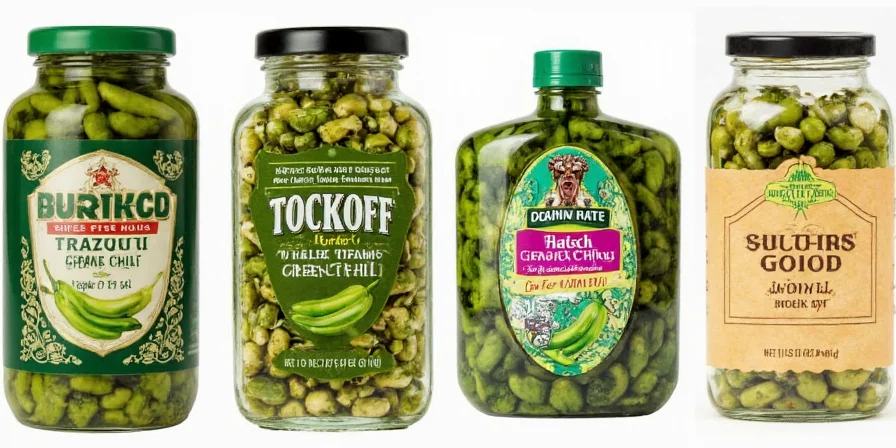
When grocery stores label peppers as 'Hatch-style' outside New Mexico's growing region (July-September), they're using marketing terminology without the flavor authenticity. True Hatch-certified peppers display the official 'Hatch Chile' logo and originate from the 25-mile stretch between Arrey and Hillsboro along the Rio Grande.
The Science Behind Hatch Valley's Flavor Advantage
New Mexico State University's Chile Pepper Institute has documented how Hatch Valley's terroir creates measurable chemical differences in the peppers:
- Soil composition: Alluvial soils from prehistoric Lake Lucero contain specific mineral ratios that influence flavor compound development
- Diurnal temperature variation: 40°F+ daily swings between day (95°F) and night (55°F) increase sugar accumulation
- Altitude: 4,300-foot elevation provides intense UV exposure that boosts capsaicinoid production
- Water source: Rio Grande irrigation delivers mineral-rich water critical for flavor development
Peppers grown from identical seeds outside this region show 15-30% lower concentrations of key flavor compounds like 2-methoxy-3-isobutylpyrazine (responsible for 'green' notes) and guaiacol (providing smokiness).
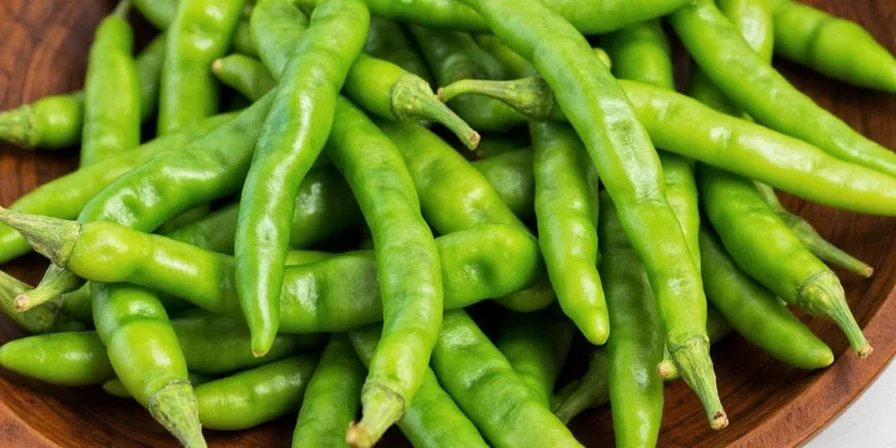
Hatch Green Chili Flavor Profile: Breaking Down the Taste Experience
Hatch green chilis deliver a distinctive flavor progression that sets them apart from other varieties:
- Initial impression: Bright vegetal notes with grassy undertones
- Middle palate: Distinct sweetness (6-8% sugar content) balanced by moderate heat
- Finish: Lingering smokiness from natural guaiacol compounds
This complex profile makes Hatch chilis uniquely versatile. When roasted properly, they develop caramelized notes that enhance both savory and sweet applications - from green chile chicken stew to Hatch-infused chocolate desserts. The flavor intensity directly correlates with ripeness: greener peppers offer brighter vegetal notes while more mature specimens develop deeper sweetness.
Hatch vs Anaheim vs Poblano: Practical Comparison for Home Cooks
| Chili Variety | Heat Level (SHU) | Flavor Characteristics | Best Culinary Uses | Substitution Ratio |
|---|---|---|---|---|
| Hatch Green | 1,000-8,000 | Smoky-sweet with grassy notes, complex finish | Roasting, stews, sauces, sandwiches | 1:1 for authentic Southwestern dishes |
| Anaheim | 500-2,500 | Mild, slightly sweet, one-dimensional | Canned green chilis, mild sauces | 2:1 for mild applications |
| Poblano | 1,000-2,000 | Earthy, rich, less sweet | Chiles rellenos, mole sauce | Not recommended - different flavor profile |
| Serrano | 10,000-23,000 | Sharp, bright heat with citrus notes | Salsas, garnishes | 1:3 (use sparingly) |
How to Cook with Hatch Green Chilis: Step-by-Step Roasting & Recipe Guide
Proper preparation unlocks Hatch green chili's full potential. Follow this professional technique:
Perfect Roasting Method (3 Ways)
- Gas stove method: Place peppers directly over medium flame, turning with tongs until 80% blackened (8-12 minutes). Seal in paper bag for 10 minutes before peeling.
- Oven method: Broil on sheet pan 4-6 inches from heat source, turning every 3 minutes until blistered (12-15 minutes total).
- Cast iron method: Dry roast in preheated skillet over medium heat, turning frequently until evenly blistered.
Pro tip: Save the blistered skins! Simmer them with onions and garlic to create a smoky base for sauces.
3 Hatch Green Chili Recipes Home Cooks Need
- Green Chile Cheeseburger: Mix 1/4 cup roasted, diced Hatch with 1 lb ground chuck before forming patties. Add 2 tablespoons to melted cheese for authentic flavor.
- Hatch Green Chile Aioli: Blend 1/2 cup roasted Hatch, 1 cup mayo, 1 tbsp lime juice, and 1 minced garlic clove. Chill 2 hours before serving.
- Freezer-Stable Green Chile Sauce: Combine 2 cups roasted Hatch, 1 cup chicken broth, 1/4 cup roasted garlic, and 2 tbsp cornstarch slurry. Simmer 10 minutes before freezing in portions.
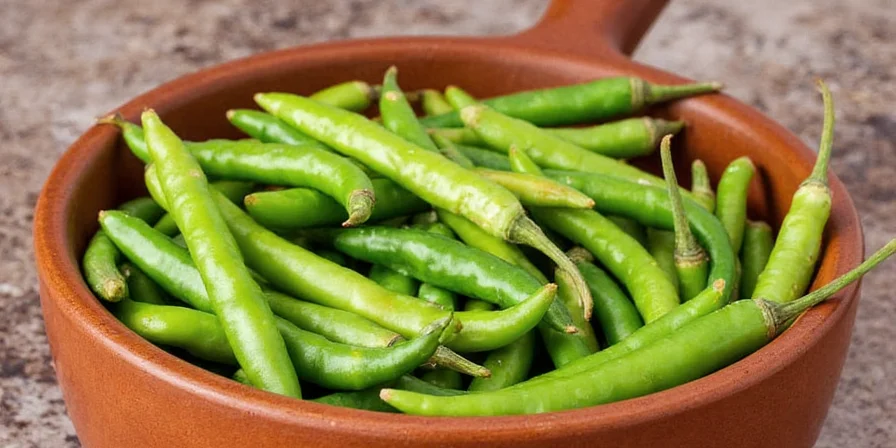
Where to Buy Authentic Hatch Green Chilis (2025 Season Guide)
Hatch green chilis are strictly seasonal with three distinct purchasing windows:
- Early harvest (July): Available at New Mexico farm stands - milder flavor, thinner walls
- Peak season (August): Nationwide availability through specialty grocers - ideal balance of heat and sweetness
- Late harvest (September): Deep red specimens turning toward Christmas peppers
2025 Authentic Sources:
- New Mexico growers: Look for the official 'Hatch Chile' logo (not just 'Hatch-style')
- National retailers: Whole Foods (August-September), Trader Joe's (limited quantities), The Honey Ranch online
- Online options: Zia Green Chile (flash-frozen), Hatch Green Chile Store (vacuum-sealed)
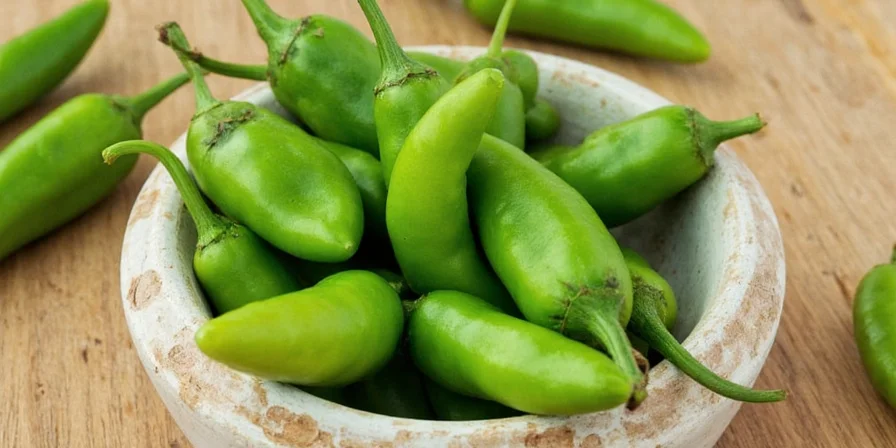
Storage Tips That Preserve Flavor:
- Fresh peppers: Store unwashed in paper bag in crisper drawer (7-10 days)
- Roasted peppers: Submerge in ice water after steaming, then freeze in 1-cup portions (12 months)
- Canned alternative: Only use when fresh unavailable - look for 'fire-roasted' with no added sugar
Hatch Green Chili Heat Levels: Mild vs Hot Explained
Hatch green chilis naturally vary in heat due to environmental factors. Here's how to identify and control the heat:
- Mild (1,000-2,500 SHU): Smooth skin, dark green color, thicker walls - ideal for family meals
- Medium (3,000-5,000 SHU): Slightly bumpy skin, standard commercial offering
- Hot (6,000-8,000 SHU): Distinct bumps, lighter green color, thinner walls - for heat lovers
Heat control techniques:
- Remove seeds and white membranes (where 80% of capsaicin resides)
- Rinse roasted peppers under cold water to remove residual capsaicin
- Balance with dairy (sour cream, cheese) or acid (lime juice)
- For sensitive palates, blanch peppers in boiling water for 2 minutes before roasting
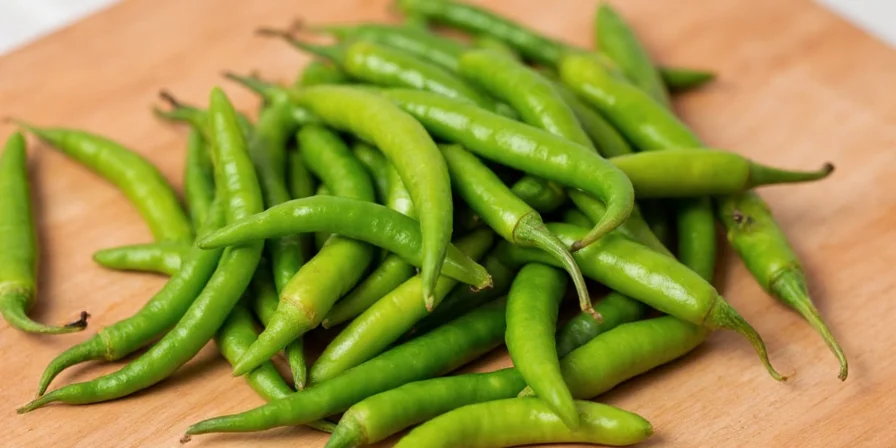
Hatch Green Chili FAQs: Answering Your Top Questions
Is there a difference between Hatch green chili and New Mexico chile?
Yes. All Hatch chilis are New Mexico chiles, but not all New Mexico chiles are Hatch. The term 'New Mexico chile' refers to the cultivar grown throughout the state, while 'Hatch' specifically denotes peppers grown in the Hatch Valley region with certified origin. Only peppers from this 25-mile stretch can legally bear the 'Hatch' name.
Why are some Hatch green chilis hotter than others from the same batch?
Heat variation occurs naturally due to microclimate differences within fields. Peppers receiving more direct sunlight and water stress develop higher capsaicin levels. The same plant can produce both mild and hot peppers - it's nature's variation, not inconsistent quality.
Can I use canned Hatch green chilis instead of fresh?
Only as a last resort. Canned versions lose 40-60% of volatile flavor compounds during processing. If using canned, choose fire-roasted varieties with no added sugar or preservatives, and supplement with 1/4 tsp smoked paprika per cup to restore lost smokiness.
How do I know if I'm getting authentic Hatch green chilis?
Look for the official 'Hatch Chile' logo with certification number, available harvest dates (July-September), and regional specificity. If sold year-round or without origin details, it's likely 'Hatch-style' grown elsewhere. True Hatch chilis also have a distinctive tapered shape with deep grooves.
Why Hatch Green Chili Belongs in Every Home Cook's Pantry
Hatch green chili delivers a unique flavor experience impossible to replicate with other peppers. Its seasonal availability (July-September) creates an annual culinary event that home cooks can leverage to create restaurant-quality Southwestern dishes. By understanding the science behind its terroir-driven flavor, mastering proper roasting techniques, and knowing where to find authentic sources, you can transform ordinary meals into extraordinary culinary experiences.
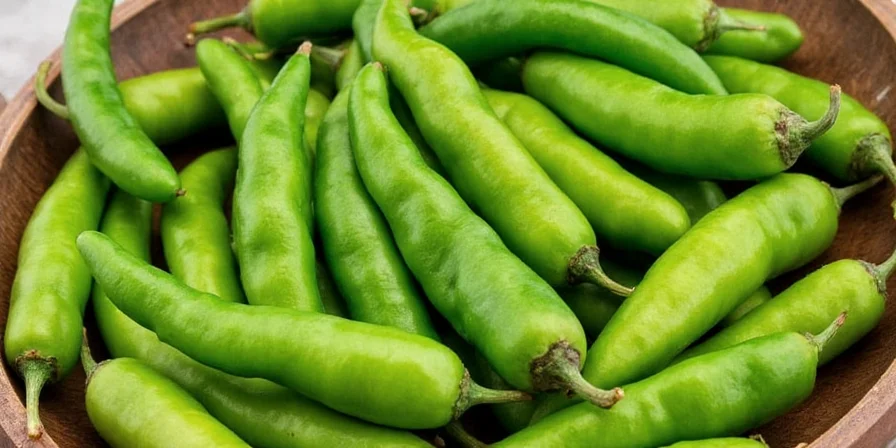
When the 2025 harvest arrives, prioritize getting authentic Hatch chilis while they're available. Freeze them properly using the techniques outlined here, and you'll have genuine Southwestern flavor ready for year-round cooking. This isn't just another chili pepper - it's the flavor cornerstone of New Mexican cuisine that deserves a permanent spot in your culinary repertoire.

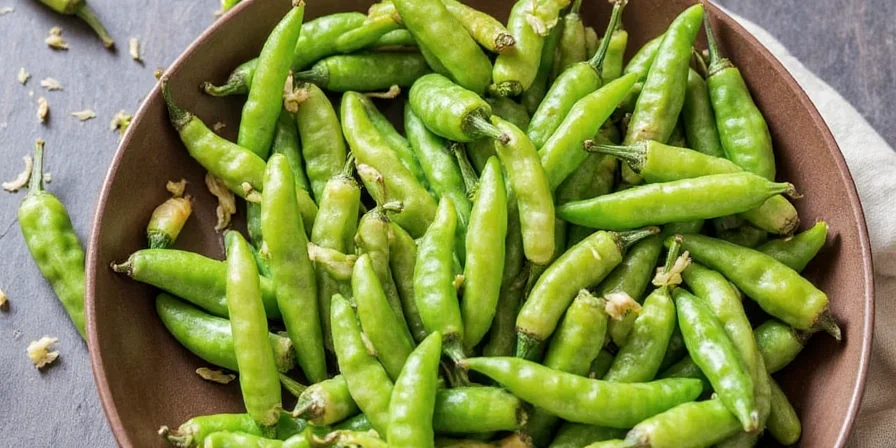









 浙公网安备
33010002000092号
浙公网安备
33010002000092号 浙B2-20120091-4
浙B2-20120091-4